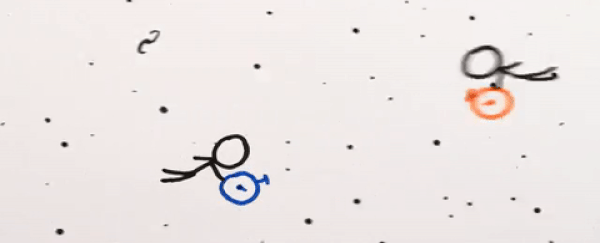One of the most revolutionary concepts that we learned in the 20th century is that time is not a universal measurement.
It doesn't matter how much our lives are governed by the same seconds, minutes, hours, days, and weeks, regardless of where we live on the globe, time will never be absolute. The rate at which it passes depends entirely on your speed and acceleration at any given moment.
But how exactly can time be slower and faster at the same time?
As the latest episode of MinutePhysics explains, the rate at which time passes actually slows down the more you're moving.
And I'm not talking about your perception of time, which recent research suggests is actually speeding up, thanks to the over-abundance of technology in our lives. I'm talking about the rate of actual time, shown in numerous experiments to slow down when particles such as muons and photons speed up.
In Einstein's theory of relativity, time dilation describes a difference of elapsed time between two events, as measured by observers that are either moving relative to each other, or differently, depending on their proximity to a gravitational mass. Basically, it states that the faster we go, the more the time is affected.
But if time is as relative as this suggests, it can seem a little contradictory.
As Henry from MinutePhysics points out, imagine if the two of us are zooming through the emptiness of space in opposite directions, and then suddenly pass by each other.
"From my perspective it seems like you're moving, and so time should go more slowly for you, but from your perspective, it seems like I'm moving, so it should go more slowly for me," he says.
So how can we both think time is going more slowly for the other person? Someone's time must actually be slower, right?
Well, no, sorry. We wish it were that simple.
The explanation has to do with how you rotate the direction of time itself every time you change speeds. Yep, you rotate time every day like it's nbd, so congrats.
Check out the video above to get the quickest, most awesome explainer for the weirdness of time dilation, and stick around until the end to get a neat little brain-teaser that could tie even the best of us in knots. Enjoy.
